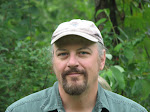One of the best things about being a writer is that
when you are in the midst of writing you are transported to another place, the setting
and experiences of whatever you are writing about. For much of my non-fiction writing career,
this has been a rather benign and pleasant process; I have been in Fenway Park
at the moment of its birth, alongside Jackie Robinson on his first day in the major
leagues, in the water with Trudy Ederle as she swam the English Channel and
proved for all time that women were at least the physical equal of men.’
Yet it is not always pleasurable. Sometimes the act of writing requires
inhabiting experiences that can range from the merely uncomfortable to the truly
unpleasant, disturbing and actually painful.
A number of years ago I had the good fortune to write a book with two
construction workers, Charlie Vitchers and Bobby Gray, who helped spearhead the
cleanup of the world trade center, resulting in the book Nine Months at Ground Zero. Over the course of seventy-plus hours of interviews
with these two men, and many times that going over the transcripts and crafting
a narrative from their words, in some ways I spent my own nine months at Ground
Zero. By the end of that project I dreams
of events I never personally witnessed dominated my nights, and I even
developed a physical reaction to the stress of the experience that still
occasionally afflicts me to this day.
But it was worth it. Not only did
I have the opportunity to translate that experience and deliver it to others,
but I gained an insight and perspective about the experience that has been
available to very few others who were not actually on site, and for that I will
forever be grateful. Any personal disturbance
was more than worth it, and paled against the impact the experience had for
those who were actually there
Almost four years ago, I was introduced to Dr. John
Parrish, a veteran of the Vietnam War who spent 366 days in Vietnam serving as
a doctor. A few years after that experience,
Doctor Parrish wrote a memorable and potent memoir, 12, 20 & 5, about his
experience, still one of the most potent of all Vietnam memoirs.
But that was not the end of his story. Over the next forty plus year, as Dr. Parrish
reached the pinnacle of success in his field as one of the foremost dermatologists
in the world, his Vietnam experience continued and affected every instant of
his life.
I was introduced to John because of my experience
working with the difficult material of Nine Months at Ground Zero and for the
way I was able to connect with and communicate with my co-authors. Since publishing his first book Dr. Parrish had
been trying to re-write his first book, to try to better capture his experience. Unfortunately he had been unable to escape
the powerful vortex of his initial experience to translate or process the
meaning of the ensuing forty years.
I met John through 400 pages of some of the most
visceral writing I have ever read. Over the
next year we spoke and met many times and together we envisioned the book John
wanted and needed to do NOW – a book that told the story of his war experience
in the context of the remainder of this life, a book that showed that wars do
not end but become a part of a soldiers’ ongoing life, sometimes re-emerging unwelcome
and unexpectedly, with impacts that could not have been anticipated.
Over the next two years I was given the task to help
John turn those searing but diffuse pages of manuscript into a coherent
narrative, using some of it, discarding other parts, determining where he need
to reveal more, teasing and cajoling and sometimes dragging and prying those
stories from him in ways that were not always pleasant or welcome, but were
always recognized as necessary. Along the way, as in the Nine Months at Ground Zero,
I was invited to experience a most intimate and private place, where John has
lived for the past forty years, a place that is both painful and unpleasant,
but also a place of redemption and release.
And like that earlier project, I have found myself taken to another
world and another place and another time, in some ways experiencing a war I
never fought. It is my hope that some of
this translated to the reader, but I realize that some of it is so profound and
so much beyond words that will forever be mine alone
That book, John Parrish’s Autopsy of War, will be
published on June 5. Its’ focus, loosely
speaking, is John’s forty-year struggle with Post-Traumatic
Stress Disorder, a subject with obvious resonance in an era in which our soldiers
are sent on multiple combat tours and return home to little support.
Although John graciously refers to me as co-author
in his acknowledgements, I do not share cover credit in the book. It is very much his book, and his words,
and not mine. At best I served as a
guide to the book writing process, providing the usually gentle organizing
principle to his considerable energy and insight, and was privileged to have
gained the trust he has withheld from so many others in his life. The result, I think, is both unlike anything
else I have ever read and so necessary to these times, because in Autopsy
of War John Parrish tells a story that is both necessary and
timely. In an era in which soldiers
return from war every day damaged in
ways that may not be apparent for decades, Doctor Parrish’s survival and
testimony is more than essential; it is mandatory if we are ever to learn to understand
and avoid the carnage that war entails, and evolve a more human reponse.
I urge you to read it.



No comments:
Post a Comment